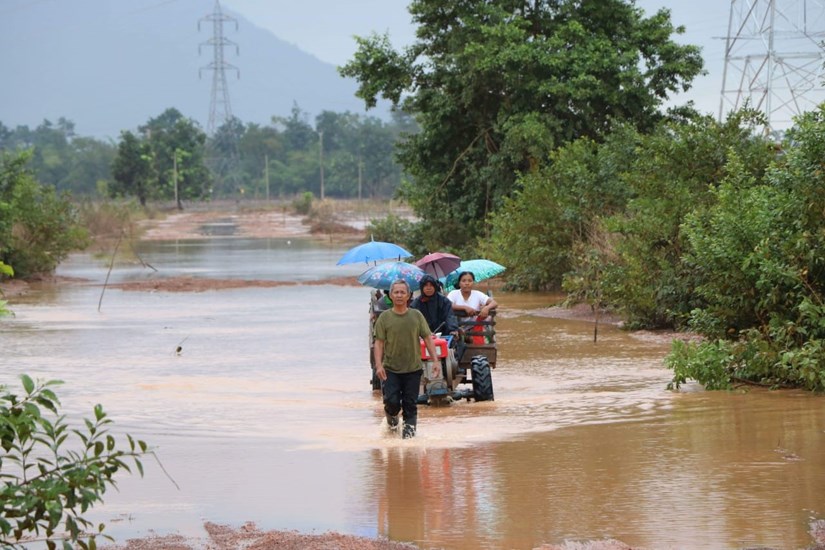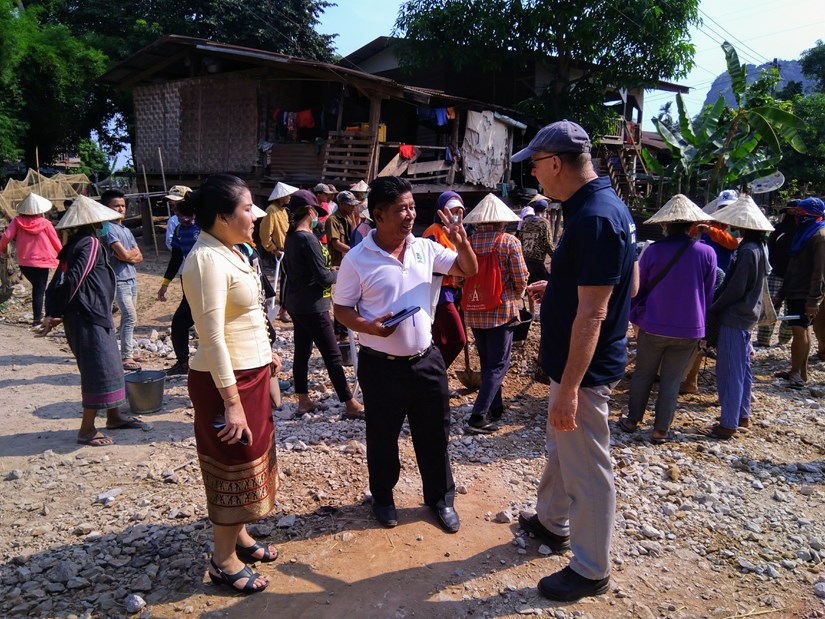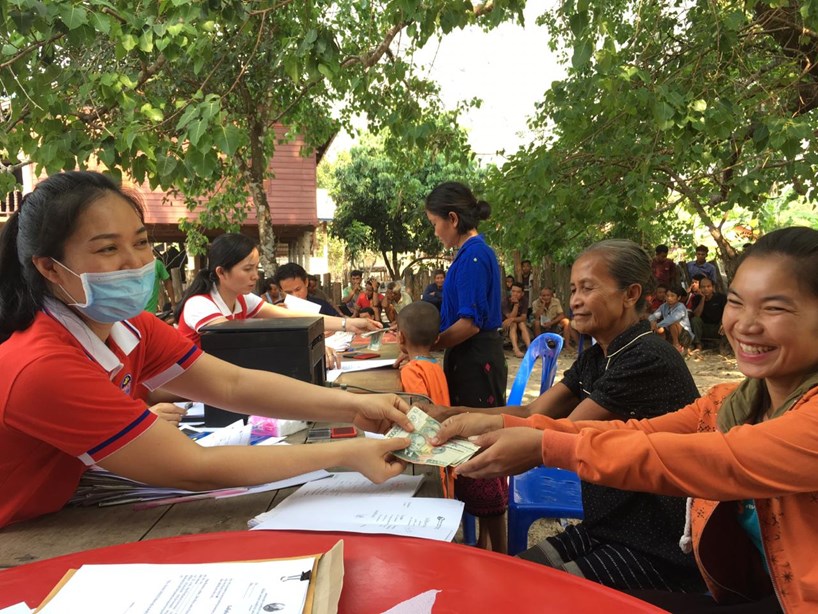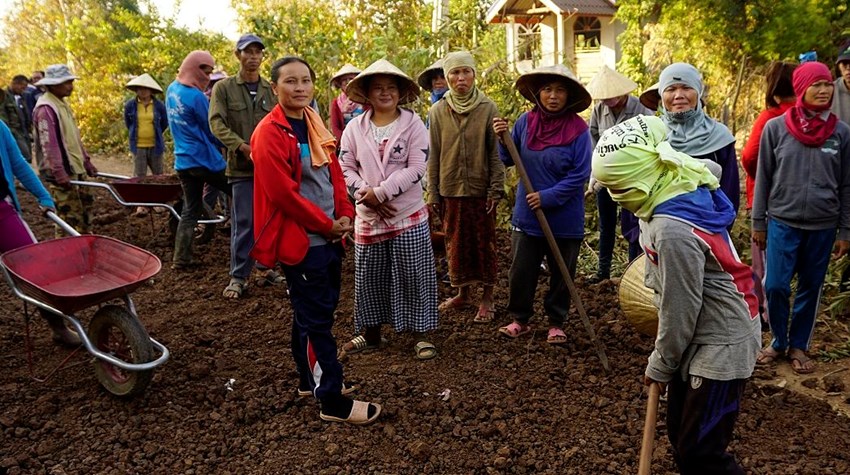Since beginning his role as National Disaster Risk Management Advisor in November, Ross has been instrumental in implementing UNDP’s Cash for Work programmes across four districts in the Khammouane province – Hinboun, Nongbok, Yommalath, and Mahaxay.
“In Khammouane, hectares of paddy fields were destroyed, impacting farming and other rural livelihoods,” said Ross. “In addition, damage to local roads and bridges had inhibited local transport, trading of rural produce, and access to health and education services. These communities had experienced floods before but nothing of this scale.”

Three subsequent tropical storms caused severe flooding in 2018, impacting the livelihoods of thousands of communities across Laos, including in Khammouane Province. Photo credit: United Nations in Lao PDR
Due to the impact of the floods in Khammouane, the province became the focus of a joint United Nations (UN) response effort. Four UN agencies – Food and Agriculture Organisation (FAO), United Nations Development Programme (UNDP), World Food Programme (WFP), and World Health Organisation (WHO) – applied for and received grant funding from the UN Central Emergency Relief Fund (CERF) for a coordinated response in the area.
Ross supported the UNDP component of the response, particularly the Cash for Work programme. Designed in collaboration with the Ministry of Labour and Social Welfare (MLSW), Cash for Work engaged community members who had lost their livelihoods in paid employment. Specifically, employment focused on restoration of the flood-damaged community infrastructure, including road repair, clearing of irrigation canals, and expansion of water storage reservoirs.
“The projects have given the community ownership over their own recovery process while providing income-generating, life-saving decent work for both men and women with equal pay,” said Ross. “In addition, UNDP provided 618 sets of tools for all village projects, which are assets that can be used in future community-level disaster preparedness, response, and resilience building activities.”

Australia Assists deployee Ross Hardy visits a Cash for Work project in Khammouane Province with local staff. Photo credit: UNDP Lao PDR
A focus for Ross on deployment was ensuring that the cash payments distributed to community members for completed work were made in an efficient and timely manner. During the first round of payments, regular monitoring identified that the movement of funds process from the national to provincial and district level was slow.
In response, UNDP agreed with the MLSW to set up payment mechanisms through the Banque Pour Le Commerce Exterieur Lao Public (BCEL) for a more efficient transfer of funds to communities for the second round of payments. To achieve this, BCEL payment teams used mobile vans to disburse funds across three of the districts – Hinboun, Nongbok, and Mahaxay.
“One of the main achievements has been to make sure the money allocated by CERF was channelled efficiently to the communities who have done the work. Regular payments to the workers is important to address basic needs of their families,” said Ross. “It has also had additional benefits of enhancing links between communities and local government, and introducing members of the community to the banking system.”

A woman in Khammouane Province receives payment from a Banque Pour le Commerce Exterieur Lao Public (BCEL) Officer. Photo credit: UNDP Lao PDR
A key achievement of Ross’s has been in building the capacity of his national and provincial counterparts. In his role, Ross also advised three local staff coordinating the implementation of the programme, and liaised between them and UNDP Vientiane.
“A main achievement was building the capacity of government counterparts to work with UNDP through increasing their understanding of its systems and improving their knowledge of Cash for Work modalities,” said Ross. “This is to ensure that future Cash for Work programmes can be implemented whenever required across the country, to communities who need it most,” said Ross.
Scheduled to remain in Laos until August, Ross said Cash for Work has been successful in assisting those who lost their livelihoods to manage following the floods.
“By the end of March 2019, 45 Cash for Work projects had been implemented across the four districts, providing temporary work for a total of 6265 people from 65 villages,” said Ross.
“We hope to build on this early recovery effort where the people worked together, the Government worked with the people, and we worked with the Government, to encourage a more long-term disaster risk preparedness and reduction programme.”



